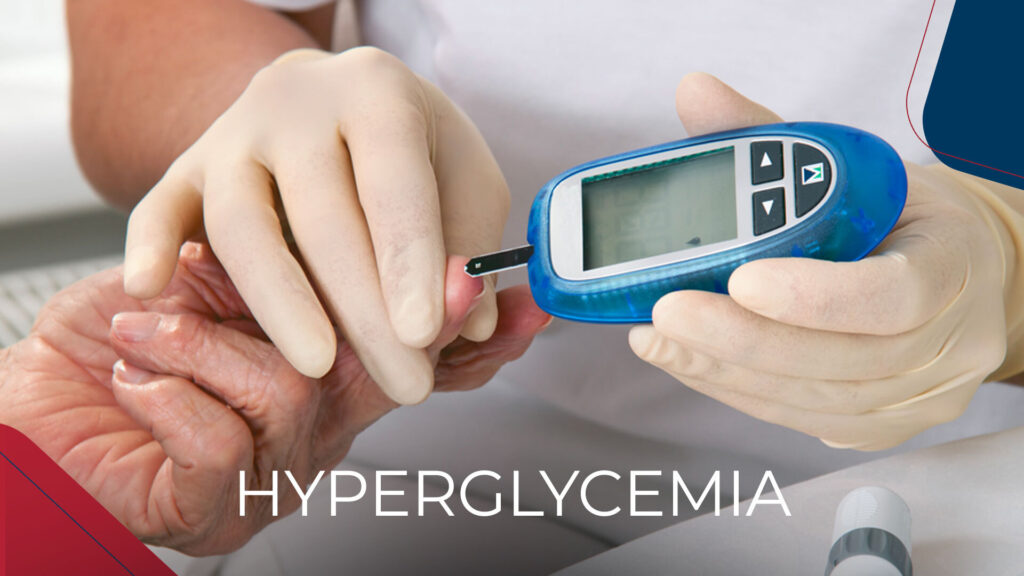Hyperglycemia

What is Hyperglycemia:
Hyperglycemia is when there is high levels of sugar (glucose) in the blood. Also considered as “high blood sugar”. Glucose comes from the foods that we eat. It is most common in those who have diabetes, but also develops in non-diabetics. It also may occur those who are critically injured or ill. It’s main cause is when the pancreas does not produce sufficient hormone insulin. Which is the main agent to control and regulate blood sugar levels. When the body does not produce enough insulin the glucose stays in the blood, rather than going to the cells. Hyperglycemia can be caused because of numerous of reasons. Some of which being: eating an excessive amount, not enough physical activities, not taking enough insulin (for those with diabetes), certain medications, stress, etc.
Symptoms:
Hyperglycemia can lead to a condition called diabetic ketoacidosis. While it is far more common in people with type 1 diabetes, it can also occur in people with type 2 diabetes as well. Especially those who are insulin dependent.
Signs of hyperglycemia may include:
• Frequent urination,
• Excessive thirst and/or hunger
• Dry mouth
• Unexplained weight loss
• Headache
• Fatigue
• Blurred vision
• Lack of energy
• Extreme tiredness.
In some cases, symptoms may not occur. Although blood sugar levels can go increasingly high without any symptoms, it is important to check with your doctor. Underlying health conditions can increase the severity of the symptoms.
Treatment:
It is important to be able to treat Hyperglycemia, as it can lead to serious health issues. The treatment should be guided by the general practitioner or endocrinologist. With the aim of reducing and normalizing blood sugar levels, as well as relieving symptoms and avoiding long-term complications. It can be done through injection of insulin and/or with medication that fight diabetes prescribed by the doctor. Noting that the practice of physical activities can help reduce your blood sugar.
In addition, the doctor may recommend changes in your lifestyle to help you improve your health. For instance, eating a balanced diet to help control blood sugar levels, and exercising, as they help improve the action of insulin in the body.

4 Responses
Greetings! Very useful advice in this particular article! It is the little changes that make the most significant changes. Many thanks for sharing!
Between us speaking, I would go another by.
Excuse, that I interrupt you, would like to offer other decision.
I join told all above.